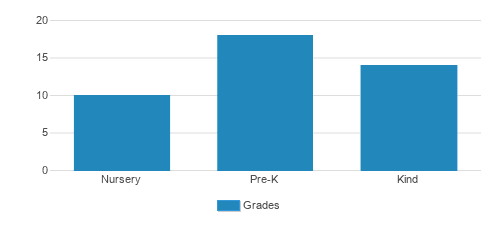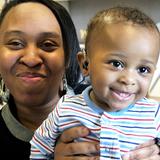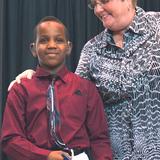CID is a school where teachers, audiologists and speech-language pathologists use listening and spoken language to teach children who are deaf and hard of hearing from birth to age 12.
We teach children to listen, talk, read and succeed in their local schools without the use of sign language.
CID also provides educational curricula, exppert consultation and continuing education opportunities for professionals.
Quick Stats (2025)
- Top Ranked MO School
- School Type: Special Education School
- Grades: Prekindergarten-4
- Enrollment: 42 students
- Average class size: 5 students
- Application Deadline: None / Rolling
- Source: Verified school update
Top Rankings
Central Institute For The Deaf ranks among the top 20% of private schools in Missouri for:
Category
Attribute
Advanced Degrees
School History
School Overview
School Type
Religious Affiliation
Grades Offered
Grades Prekindergarten-4
Year Founded
1914
Summer School Offered
Yes
Student Body
Total Students
42 students
Student Body Type
Co-ed
% Students of Color
36%
State avg.: 20%
Students by Grade

Academics and Faculty
Total Classroom Teachers
5 teachers
Student : Teacher Ratio
8:1
National avg.: 13:1
% Faculty w/Advanced Degree
99%
Average Class Size
5 students
Classroom Dress Code
Casual
Tuition and Acceptance Rate
Admission Deadline
None / Rolling
% on Financial Aid
100%
Sports
Total Sports Offered
1 sport
Sports
School Notes
- generous scholarship support for students
- caring, experienced, energetic teachers with advanced degrees
- on-site pediatric audiologists and speech-language pathologists
- on-site school counselor and occupational therapist
- cochlear implant expertise
- specially constructed facilities for teaching deaf children, birth to age 12
- Washington University affiliated program
- Missouri First Steps provider for birth-3
- Illinois Child and Family Connections
- dynamic early literacy and literacy programs
- play-based learning pre-k and kindergarten
- emphasis on social and pragmatic skills along with speech, listening, language, reading and academics
- physical education, art, music and computer
- parent support meetings
- mainstreaming assistance
- special activities
- before and after school care available
- extended school year and graduate enrichment programs (summer)
Source: Verified school update
Frequently Asked Questions
What sports does Central Institute For The Deaf offer?
Central Institute For The Deaf offers 1 interscholastic sports: Tennis.
What is Central Institute For The Deaf's ranking?
Central Institute For The Deaf ranks among the top 20% of private schools in Missouri for: Highest percentage of faculty with advanced degrees and Oldest founding date.
When is the application deadline for Central Institute For The Deaf?
The application deadline for Central Institute For The Deaf is rolling (applications are reviewed as they are received year-round).
School Reviews
Endorse Central Institute For The Deaf. Endorsements should be a few sentences in length. Please include any comments on:
- Quality of academic programs, teachers, and facilities
- Availability of music, art, sports and other extracurricular activities
- Academic or athletic awards
Recent Articles

A Parent's Guide To Understanding High School Teaching Methods
This comprehensive guide helps parents navigate the various teaching methods used in today's high school classrooms. By understanding these approaches, you'll be better equipped to support your teen's learning journey, communicate effectively with teachers, and create a complementary learning environment at home.

February 08, 2025
Social Emotional Learning: Education's Hidden SymphonyA musician's perspective on Social Emotional Learning reveals how this educational framework orchestrates success through five essential emotional competencies.

January 24, 2025
A Roadmap For Starting A Private SchoolUse this roadmap as a set of talking points with your trusted mentors and professionals to start the private school of your dreams. You're not alone. Over the years, hundreds of folks like you have had the same dream. From Quintilian to Maria Montessori to Lucy Madeira Wing, visionary educators have established schools to teach according to their beliefs and methodologies.


























